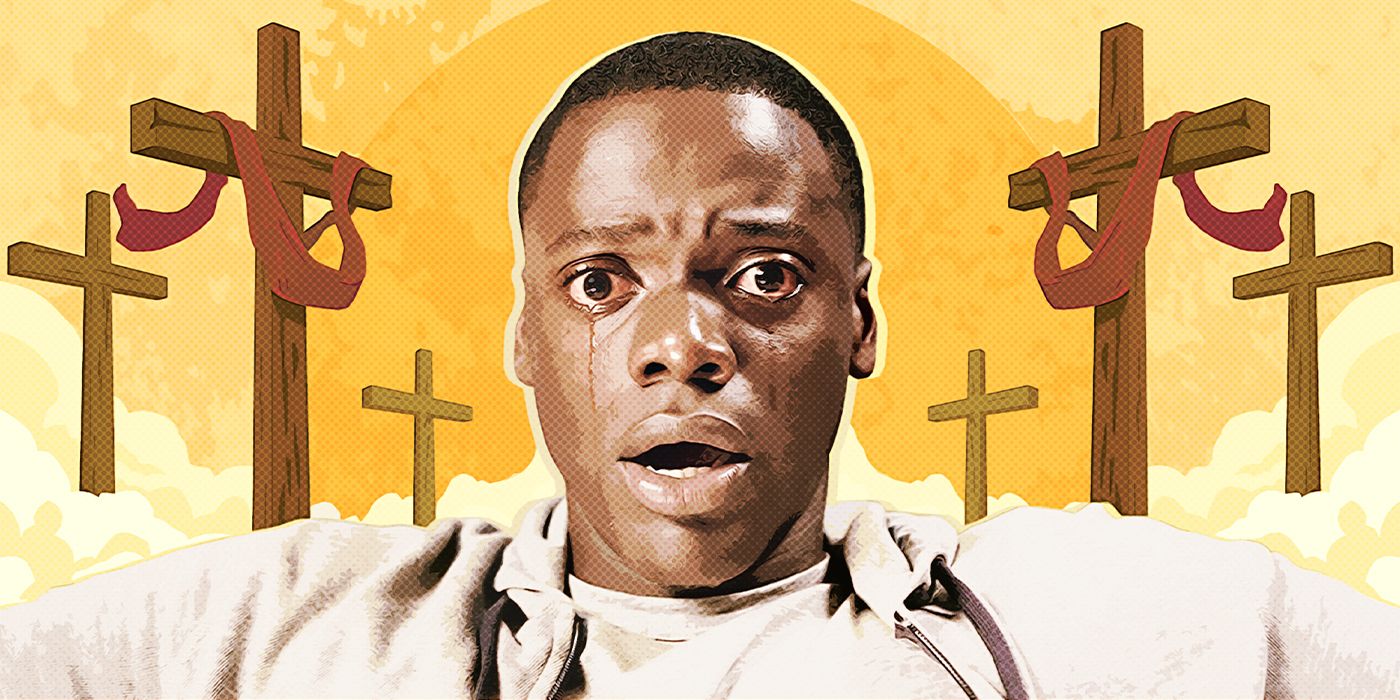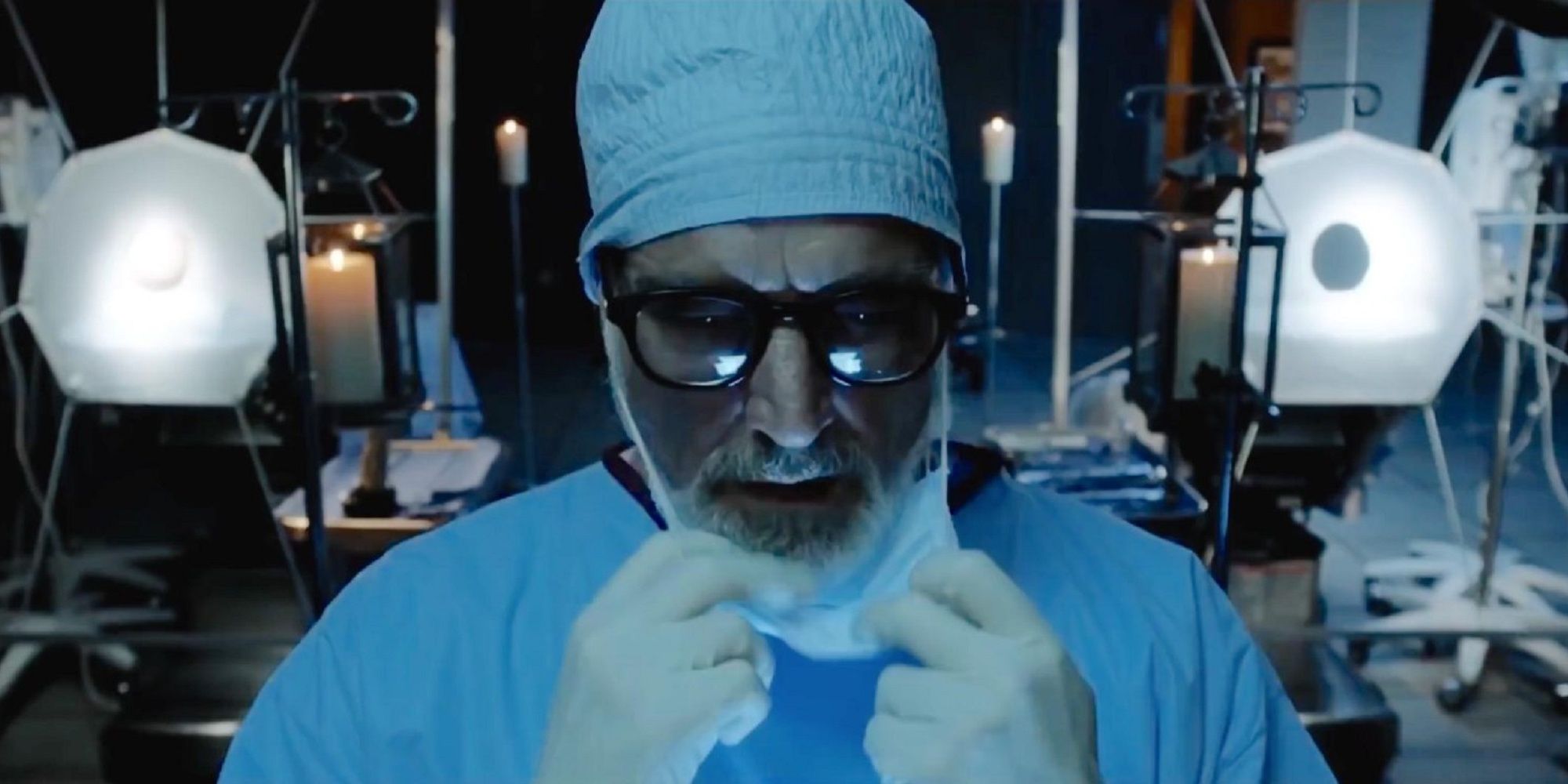The Big Picture
- Get Out captivated audiences with its exploration of racial prejudice in America, highlighting the struggle for equality in what is perceived as a "post-racial" society.
- The film's ending challenges the audience's expectations, with Chris narrowly escaping the horrors of the Armitage family only to face a potentially racist encounter with the police.
- Director Jordan Peele uses metaphors throughout the film, such as the Sunken Place, to symbolize the underlying bigotry that still exists in society and the need for continued progress.
There aren’t many recent films that have been as immediately accepted as all-time classics as Jordan Peele’s highly influential 2017 horror film Get Out. Although Peele had previously been best known for his comedic work on the sketch show Key & Peele, Get Out captured the cultural zeitgeist with its study on the “post-racial” vision of Obama’s America, and how the nation is still struggling with its history of racial prejudice.
Get Out stands as a warning to the nation's Obama era that feels even more relevant after the Trump administration. Peele's masterpiece became one of the rare horror movies to receive serious award-season attention, leading the esteemed director to take home the Academy Award for Best Original Screenplay. The film itself was nominated for Best Picture, Best Director, and Best Actor (Daniel Kaluuya). Get Out continues to provoke discussion and debate, particularly because of the climactic way that Peele concludes his story. To elaborate further upon this, let's dive back into one of horror's best endings.

Get Out
A young African-American visits his white girlfriend's parents for the weekend, where his simmering uneasiness about their reception of him eventually reaches a boiling point.
- Release Date
- February 24, 2017
- Director
- Jordan Peele
- Cast
- Daniel Kaluuya , Allison Williams , Catherine Keener , Bradley Whitford , Caleb Landry Jones , Marcus Henderson
- Runtime
- 103 minutes
What Happens to Chris in 'Get Out'?
Get Out envisions a twisted version of Meet the Parents with a sharp critical eye toward racial prejudice. The photographer, Chris Washington (Kaluuya), is nervous about spending time with his girlfriend Rose Armitage (Allison Williams) and her wealthy parents, Dean (Bradley Whitford) and Missy (Catherine Keener) at their lavish estate in Upstate New York. Although Rose insists that her parents are “not racist,” Chris finds himself increasingly uncomfortable as he spends more time with the Armitage family. Almost expectedly, Dean and Missy are keen to turn every conversation into one about race; “You know, I would have voted for Obama a third time,” quips Dean.

Jordan Peele's Next Movie Sets Christmas 2024 Release Date
Peele also has a new animated project in the works at Monkeypaw Productions.Chris becomes even more suspicious as he converses with the Armitage family’s all-Black staff; the groundskeeper Walter (Marcus Henderson) won’t engage in a proper conversation with him, and the housekeeper Georgina (Betty Gabriel) appears to be in a constant state of terror. Chris’ trepidation intensifies after an encounter with Logan King (LaKeith Stanfield) at one of the Armitages’ lavish outdoor parties, populated by a plethora of white guests. After the flash of Chris’ camera triggers Logan to have a seizure, Chris discovers that Logan is actually Andre Hayworth, the missing person referred to in Get Out's beginning.
What Is the Sunken Place?
Chris realizes that the Armitage family is hiding something. Although Missy claims to be a psychiatrist, she is able to transport him into a mental “Sunken Place” that renders him paralyzed. Chris realizes that the “Sunken Place” is part of the Armitages’ conspiracy with the mysterious Order of the Coagula. The ruthless cult traps Black men and women in “the Sunken Place” so that they can use their bodies without considering them as individuals; Rose invited Chris to her parents’ home in the first place so that the other guests could “check the merchandise.” He is one of many Black people who she has lured home to her parents and trapped with “the Sunken Place.”
Chris is captured and held hostage by the Armitages as Dean (a surgeon) auctions his body in a sequence that resembles a slave auction. Chris’ body is purchased by the blind art dealer Jim Hudson (Stephen Root), who desires Chris’ eyes because of his skills as a photographer. Although the Armitages believe that Chris is subdued within “the Sunken Place,” they don’t realize that he has picked cotton (a reference to America’s history of slavery) and jammed it in his ears to avoid falling under Missy’s spell. Chris is able to escape from the family’s home after a brutal fight with Rose’s insane brother Jeremy (Caleb Landry Jones).
What Happens at the End of 'Get Out'?
Chris narrowly escapes the Amitage’s estate, but Rose follows him and attempts to shoot him down. Rose is assisted by Walter, whose body is controlled by the Order of the Coagala’s founder, Roman (Richard Herd), who's also her Grandfather. However, Chris remembers that the flash of his camera triggered Andre to escape the “Sunken Place;” he once again uses his camera to free Walter’s mind. Walter shoots both Rose and himself, but Chris can’t bring himself to kill Rose. He decides to leave her bleeding on the sidewalk as he attempts to find a way home. Chris hears sirens in the background, and his immediate thought is terror; as a Black man covered in blood on top of a white woman, he realizes that the police will likely blame him for the deaths of the Armitages. Chris was already traumatized earlier in the film after a police officer badgered him for identification when he and Rose were driving to her parents’ home; Rose had managed to ward off the officer, but now, Chris no longer has anyone to defend him from a racist cop.
However, Chris is relieved to realize that the sirens actually belong to a vehicle operated by his best friend Rod Williams (Lil Rel Howard), a TSA agent whom he has been communicating with throughout his visit. Rod helped Chris put together the clues about Andre’s disappearance, and ended up following Chris’ signal after his cell phone was taken offline by the Armitages. Rod is able to transport Chris to safety as they leave Rose behind. Although the last-minute rescue by Rod comes as a moment of relief, Peele’s original ending was far darker. In an earlier draft of the script, the sirens belong to real police cars, and the police arrest Chris for the murder of the Armitage family. With no one to believe his account of what actually happened, Chris is imprisoned. Peele felt that the film needed a happier conclusion, and wanted to give Chris autonomy over his hero narrative. It’s worth noting that the film was released only a few months after the election of Donald Trump; perhaps Peele felt that his film could provide some escapism from the bigotry that existed in real life.
Like all of Peele’s films, Get Out is deeply metaphorical. The Sunken Place serves as a metaphor for the underlying bigotry that exists even in modern day. Many white liberals view befriending Black people as a commodity (like the ones literally sold by the Order of the Coagula), but without giving them any agency. The film serves as a reminder that America's history is a deeply racist one and that the progress made represents only a fraction of what still must be accomplished. The “post-racial” society is as much a myth now as when the movie was first released, and the notion of “equality” — as it exists in both minds of those who benefit from our current societal structure and those who suffer under it — is no equality at all.
Get Out is currently streaming on Prime Video in the U.S.


